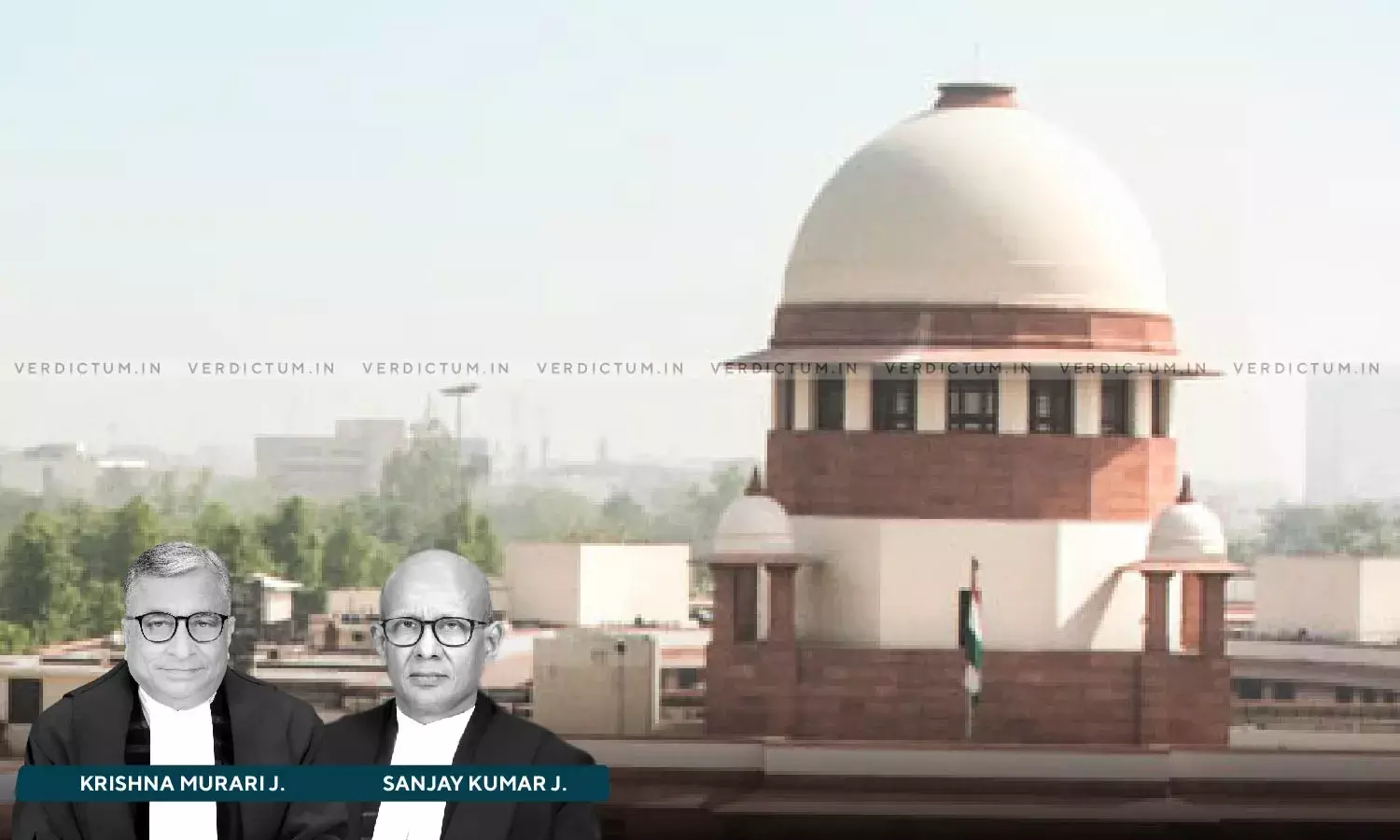Will Seeking CCTV Footage, Call Records In Matrimonial Dispute Involving Allegations Of Adultery Violate Right To Privacy: SC To Consider

The Supreme Court has issued notice in a Special Leave Petition (SLP) that challenged the Delhi High Court’s judgment which had held that seeking CCTV footage, call records and hotel booking details to establish adultery in a matrimonial discord, does not impinge on the fundamental right to privacy as the right to public morality would advance is such matters.
In the matter, a divorce was sought on the grounds of cruelty and adultery, where the Court's intervention was called upon to establish cogent evidence to prove adultery. The single judge bench of the Delhi High Court had held "...At the cost of repetition, I may observe that it is not as if the respondent is seeking information about any stranger staying in the hotel, her plea is only for records pertaining to her legally wedded husband, who she has a reason to believe is indulging in adultery with a particular lady in a particular room".
A bench of Justice Krishna Murari and Justice Sanjay Kumar while issuing notice to the respondent-wife, granted two weeks to file a counter-affidavit.
“Rejoinder affidavit, if any, be filed within one week thereafter. We make it clear that at this stage we have not passed any interim order”, the bench observed in the matter.
AOR Preeti Singh appeared for the petitioner, and Advocate Prabhjit Jauhar appeared for the respondent.
The present case is a Hindu matrimonial discord matter, where a wife sought a divorce based on cruelty and adultery, and further alleged that her husband had an illicit affair with his friend, the respondent-wife sought CCTV footage of the Hotel (Hotel Fairmont) where the husband and his friend along with her daughter allegedly stayed. Call detailed records (CDRs) were further sought by the wife. Pursuant to an application before the Family Court for the same, the Court then passed the impugned order directing Hotel Fairmont, Jaipur to preserve the documents relating to the reservation details, payment details, and ID proofs of room no.219 (where the petitioner allegedly stayed with his friend) for the period between April 29, 2022, to May 1, 2022, and send the same to the Court in a sealed cover. It had also opined that the documents being sought by the respondent were necessary to prove the charges of adultery and cruelty levelled against the petitioner.
It was the contention of the respondent-wife that the Family Court was well aware of the fact that the reservation details and call detail records were necessary for adjudication of the lis pending between the parties. The summoning of the reservation details would therefore be necessary to establish the charge of adultery. Furthermore, the call detail records would also be relevant to prove the proximity of the relationship and also determine the degree of closeness between them.
While the petitioner-husband argued inter alia that the Family Court had failed to appreciate that no prima facie case of adultery against the petitioner was made out. Further that no useful purpose would be achieved by calling for the CDRs as same cannot establish cruelty and adultery in any manner. The petitioner then underlined the right to privacy that would be breached upon the retrieval of CCTV footage and call records.
The single judge bench of Justice Rekha Palli then deliberated over a conflict between the fundamental rights of two parties, placed reliance on Mr. X v. Hospital Z (1998) 8 SCC 296, whereupon disclosing vital information to the appellant Ms. Y that Mr. X was HIV(+), the marriage stood canceled. It was held in the matter that,
“Since ‘right to life’ includes the right to lead a healthy life to enjoy all the faculties of the human body in their prime condition, the respondents, by their disclosure that the appellant was HIV(+), cannot be said to have, in any way, either violated the rule of confidentiality or the right of privacy. Moreover, where there is a clash of two Fundamental Rights, as in the instant case, namely, the appellant's right to privacy as part of their right to life and Ms „Y’s right to lead a healthy life which is her Fundamental Right under Article 21, the right which would advance the public morality or public interest, would alone be enforced through the process of court, for the reason that moral considerations cannot be kept at bay and the Judges are not expected to sit as mute structures of clay in the hall known as the courtroom but have to be sensitive, in the sense that they must keep their fingers firmly upon the pulse of the accepted morality of the day’”.
The Supreme Court will hear the matter further on August 7, 2023.
Cause Title: Sachin Arora v. Manju Arora
Click here to read/download the Order

